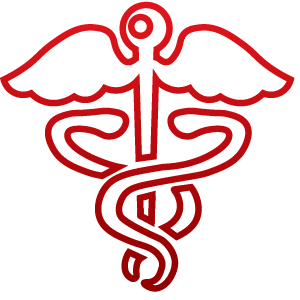General Health and Wellness
Employees can’t be at their best if they aren’t healthy. Empower your employees to make healthy decisions with informative courses like Workplace Stress Resiliency, Eating Right for Health and Fitness, and Smoking Cessation, just to name a few.

| Course Name | Course Description | Length |
|---|---|---|
| Dealing with Stress | This one-hour course aims to prepare you with the necessary tools to pick up on the cues indicating that things may be more stressful than just the normal, everyday triggers that ebb and flow in all of our lives. | 1h |
| Diabetic Emergencies | Diabetes is a growing health concern. Many people are at serious risk and unaware that they are even diabetic. Others may be managing their diabetes, but they may have forgotten to take their insulin, or they forgot to eat and are now having a crisis. You may very well be working with someone who is diabetic and not even know it. If a co-worker were to suffer a diabetic emergency, would you know how to help them? Understanding the signs and symptoms of diabetic emergencies will help you to respond confidently and effectively to help a person experiencing a diabetic emergency. | 1h |
| Eating Right for Health and Fitness | By 2030, recent reports project that half of all adults in the United States will be obese. In order to feel healthier from the inside out, it is essential to understand what you are eating and how you are eating. In this course, we will tackle the root issue behind these illnesses lack of proper diet and exercise. | 1h |
| High Blood Pressure Reducing Your Risks | This course defines high blood pressure and describes the lifestyle changes that you can make to lower your risk of hypertension while improving your overall health. | 1h |
| Interacting with the Mentally Ill as a First Responder | With the increased number of cases in the mental health population as well as greater mental instability within the general public, dealing with the mentally ill has become a common occurrence for first responders. Often lacking is a strong knowledge base and proper tools and techniques for how to handle and interact with these individuals safely and effectively. Proper identification and understanding of the major mental disorders are essential. Additionally, being able to identify the various classes of psychiatric medications and their uses will help the first responder in the identification of the type of mental illness as well as guide his or her interaction. | 1h |
| Opioid Crisis: Protecting Our First Responders | The increased availability of synthetic opioids coupled with the heroin epidemic has not only led to a significant increase in overdoses and deaths, but also an increased risk to first responders who must come into contact with these substances during the course of their duties. Exposure to small amounts, the size of a grain of sand, can lead to respiratory depression and even death. Proper identification and knowledge of the various opioids, signs and symptoms of exposure, and immediate life-saving measures to be employed in the event of exposure are critical to saving the life of yourself or others. Additionally, the likelihood of first responder exposure requires the implementation of universal precautions including but not limited to personal protective equipment (PPE), Narcan training, and specific procedures for testing of suspected substances. | 1h |
| Sleep and Your Health | Sleep is an essential part of our lives. Unfortunately, many of us take the importance of sleep for granted. Quite often stress, work, and life in general get in the way of a good night’s rest. Poor sleep hygiene impacts not just the individual but society as a whole. Understanding the signs and symptoms of sleep deprivation along with the various sleep disorders will help you to identify potential warning signs in yourself and that of others. There are many effective treatments available for sleep disorders along with various tips and tools for getting better sleep. | 1h |
| Smoking Cessation | The use of tobacco is one of the most prevalent, deadly, and costly of habits. Smoking is bad for not just your own health but for those around you as well. Recognizing and accepting the reasons why you should quit is half the battle. You need the help and support from effective treatment options to help you quit smoking for good. Lastly, having a realistic plan to quit smoking and knowing about the many resources available for you or others will set you on the path to becoming a non-smoker. | 1h |
| Stress and Your Health | This one-hour course explains the importance of understanding and effectively reducing stress in daily life. Stress and Your Health will provide practical applications of stress management. | 1h |
| Tourette Syndrome and Other Neurological Disorders | Tourettes disorder is the most widely studied and most severe of the tic disorders. Tourettes disorder and the other associated neurological disorders can have a significant impact not only on the daily lives of the persons affected but those around them as well. Understanding the signs and symptoms of Tourette’s disorder along with ADHD and OCD will help you to identify the conditions, have a better understanding of these disorders, and an appreciation for the struggles these individuals live with on a daily basis. There are many effective treatments available in the battle against these various disorders along with many resources available for you or others to seek help. | 1h |
| Understanding Anxiety Disorders, OCD, and PTSD | Anxiety disorders are second only to mood disorders in terms of being the most commonly diagnosed mental disorders. Anxiety disorders can affect anyone and have a significant impact on their daily lives. Understanding the signs and symptoms of the anxiety disorders along with OCD and PTSD will help you to identify potential warning signs in yourself and that of others. There are many effective treatments available in the battle against these various disorders along with many resources available for you or others to seek help. | 1h |
| Understanding Autism Spectrum Disorder | Autism spectrum disorder (ASD) can cause significant social, emotional, communication, and behavioral challenges. People with autism spectrum disorder interact, behave, and communicate in different ways than most people. People with ASD vary in terms of their abilities and the amount of help they need. ASD can have a significant impact not only on the daily lives of the persons affected but those around them as well. Understanding the signs and symptoms of autism spectrum disorder will help you to identify the unique features of the disorder and have a better understanding of and an appreciation for the struggles these individuals live with on a daily basis. While there are no cures, there are many effective treatments along with many resources available. | 1h |
| Understanding Behavior, Burnout, and Depression | Usually, we all cope with our life situations successfully. Sometimes, however, we may feel overwhelmed by certain events or difficulties. Some people suffer from brief periods of mental illness or instability and then seem to recover completely. Others suffer from mental disorders for most of their lives. Regardless of the cause or the duration of the mental illness, following the completion of this one hour course, you to be able to recognize mental health difficulties.101″)” | 1h |
| Understanding Carpal Tunnel Syndrome | Although Carpal Tunnel Syndrome (CTS) is a strong driver of workers’ compensation costs, lost wages and productivity, and disability, there is still a limited understanding of its incidence and exact causes in working populations. This course will cover the basic definitions and symptoms of carpal tunnel syndrome (CPS), as well as offer ways to alleviate the risk of acquiring it in the workplace. | 1h |
| Understanding Depression and Bipolar Disorder | Mood disorders are the most commonly diagnosed of all the mental disorders. Depression and bipolar disorder can affect anyone and have a significant impact on his or her daily life. Understanding the signs and symptoms of these two conditions will help you to identify potential warning signs in yourself and that of others. There are many effective treatments available in the battle against depression and bipolar disorder along with many resources available to seek help. | 1h |
| Understanding Eating Disorders | Eating disorders are treatable medical illnesses which include anorexia, bulimia, and binge eating disorder. Quite often, eating disorders coexist with other mental disorders such as anxiety disorders, depression, and substance abuse. Eating disorders can become life-threatening if a person does not receive proper treatment. Understanding the signs and symptoms of the eating disorders will help you to identify potential warning signs in yourself and that of others. There are many effective treatments available in the battle against eating disorders along with many resources available for you or others to seek help. | 1h |
| Understanding Prediabetes | Diabetes is a growing health concern. Many people are at serious risk and unaware of it. Prediabetes is the precursor to diabetes. This means you can reverse your path to diabetes with lifestyle changes. Diabetes can affect anyone and have a significant impact on their daily lives. Understanding the signs and symptoms of the prediabetes will help you to identify the warning signs and risk factors in yourself and that of others. There are many preventive measures you can start today in the battle against diabetes along with many resources available for you or others to get more information. | 1h |
| Walking Your Way to Fitness | Nobody plans to get out of shape. With the challenges of everyday life that most adults cope with, sometimes it just sneaks up on us. When it does, some will make excuses for why they can’t exercise; still, others jump full tilt into a rigorous program and either hurt themselves or simply burn out. The key to starting an exercise program after a sedentary lifestyle is to start slow and do something that won’t be too rigorous or too expensive. In this course, the learner will explore some common sense approaches to getting back into shape with a focus on starting a walking program. | 1h |
| Yoga for First Responders | First responders serving in emergency response can experience physical health issues which range from chronic pain to difficulty sleeping. They are also at risk for post-traumatic stress and are routinely challenged to perform high-stress situations. Yoga practice is effective for reducing the impact of stress experienced by emergency personnel and increasing resiliency to support improved performance in crisis situations. This course explains the scientific basis for yoga practice to support emergency personnel and provides introductory yoga practices appropriate for any first responder. No experience is necessary and flexibility is not a requirement. Although most people associate yoga with poses, this course highlights the most important and beneficial aspect, tactical breathwork. This course will allow you to experience yoga practice and consider what types of yoga may be a good fit for you. Also included are strategies for incorporating yoga in emergency personnel units. | 1h |
